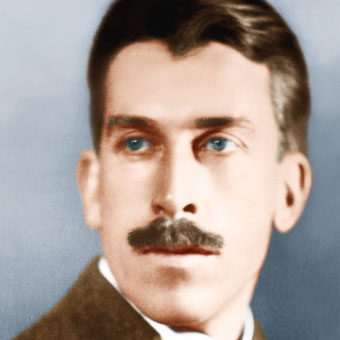
Biography
Sir Arthur Bliss is generally remembered as an English composer, a pillar of the British musical establishment, but he was in fact half-American (on his father’s side), and America was to play an important part in his life and career.
Bliss was born in London on 2 August 1891 and was educated at Rugby School and Pembroke College, Cambridge. In the spring of 1914 he attended the Royal College of Music – only for a term, but long enough to receive valuable instruction and advice from Vaughan Willliams and Holst.
His studies were interrupted by the outbreak of the First World War. Bliss obtained a commission, to servein France, first with the Royal Fusiliers, and then with the Grenadier Guards. He was wounded on the Somme in 1916 and, two years later, gassed at Cambrai, and his bravery was commended in despatches, but he survived.
Bliss began to make an impact as a composer shortly after the War, with works like Madam Noy (1918) and Rout (1920), and he also began to be noticed as a conductor.
Bliss was always at the centre of British musical life: he worked in the Overseas Music Service of the BBC in 1941, and was the BBC’s Director of Music from 1942 to 1944. He was knighted in 1950, and was appointed Master of the Queen’s Musick in 1953, in succession to Sir Arnold Bax. He died on 27 March 1975.
Reprinted by kind permission of Boosey & Hawkes
Works
Composer Website
Tags
United Kingdom
